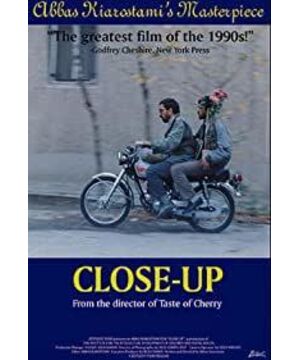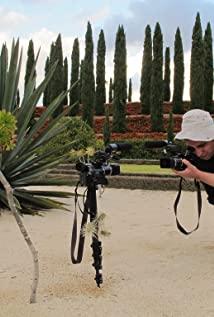I think of the three movies I watched recently, "The Barber", "A Childhood in the South", and yesterday's "Close-Up", all of which used real characters in real life to interpret the real events that happened to them, presenting a similar The feeling of a documentary makes the whole film more real and believable. At the same time, the film is used to deal with it, highlighting what the director wants to express. What's special about "Close-Up" is that it combines both real recording and film shooting. The largest part of the trial is the real record. An interesting point here is that the trial was filmed and recorded with the consent of the judge and the prisoner, that is, the prisoner, that is, the protagonist himself, knew that this was a movie. There is a conversation at the beginning. The director asked, "We want to shoot this trial, do you think it's appropriate?" "Yes, because you are my audience." So from the beginning, the prisoner has positioned himself as a "performer". The prisoner himself was arrested and prosecuted for "suspected fraud" because he impersonated a famous director. During the trial, he also admitted his love and desire for acting. And insisted that it was not a premeditated fraud, just because of his love for acting, and the respect and kindness of the victim's family for "acting another person", he couldn't help but want to continue acting. Is this trial a real record, or is it another meticulous performance by the prisoner? Just like after the trial, when almost everyone sympathized with the prisoner, the youngest son of the plaintiff did not trust him, saying, "The role he is now playing is a wounded soul." So what the prisoner showed in the trial was touching. And the thinking part, is it true or deceitful? Speaking of the movie itself, many of the lines, whether arranged by the director or the prisoner himself during the trial, are very interesting and thought-provoking. If it wasn't for such an "interesting" prisoner, the movie might not have been so successful. At the end, the impersonated director appeared, riding a motorcycle and carrying the impostor who was released from prison to visit the deceived. The impostor was holding a pot of red flowers, and the motorcycle was driving through the traffic. The picture becomes lighter and brighter. One can't help but wonder: what's next for impostors who crave and love acting? Will something good happen? Finally, when the three meet, the deceived forgives and blesses the impostor, while the impostor bows his head and smiles shyly. The picture is frozen, full of warmth and hope. Another: Actually, most people have probably had a moment in their life when they want to become a celebrity, or become a very influential person, and want to gain a greater sense of presence. In essence, it is to pursue more sense of security and value. Maybe that's what we're after in our life.
View more about Close-Up reviews








